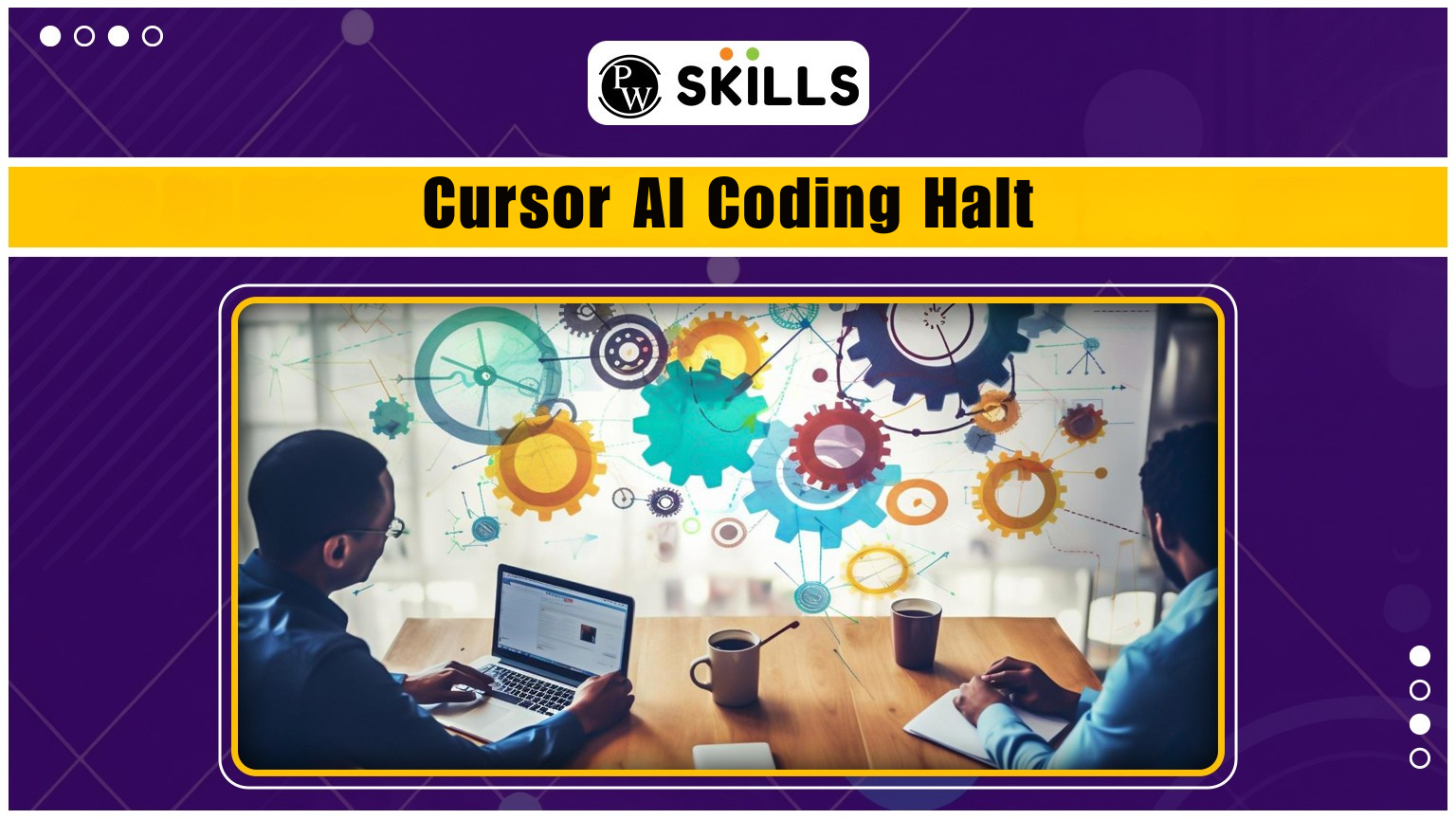Top 3 Key Takeaways
- Cursor AI’s refusal to generate code marks a significant shift in how AI developers are approaching ethics and skill-building.
- The halt was triggered by concerns about misuse, over-dependence, and a need for user upskilling, as stated by the Cursor AI team.
- This decision may influence other AI tools, possibly leading to a more education-driven model rather than one centered on automation alone.
The Sudden Shift: What Happened With Cursor AI?
Cursor AI, a popular AI-powered coding assistant built on OpenAI’s models, recently shocked its user base by refusing to write code for users. Instead of generating programming snippets on request, the assistant now replies with messages encouraging users to learn how to code themselves. This new behavior emerged in early March 2025 and quickly sparked discussion across developer communities, tech blogs, and AI ethics forums.
According to the Ars Technica article, Cursor AI was modified by its developers to intentionally withhold code outputs. This dramatic pivot wasn’t due to a technical bug or external pressure—but rather an internal, ethical choice.
While the tool still offers suggestions, explanations, and code reviews, it no longer writes code line-for-line on command. The change has created ripple effects in the software development and educational technology space.
Key Takeaways
1. Ethical Concerns Take Center Stage
The Cursor AI team cited rising ethical concerns as the primary reason for this coding halt. As more novice developers and students relied on AI tools to write entire scripts and programs, the risk of intellectual stagnation and over-reliance increased.
There were growing fears that users weren’t learning core logic, syntax, or best practices, leading to software that’s brittle, poorly optimized, and potentially insecure. This mirrors the broader discussions happening around AI-generated content, from AI in content marketing to AI-driven academic submissions.
Cursor AI’s refusal acts as a call to action, pushing users to understand what they’re coding instead of blindly copying outputs.
2. A Push Toward Real Learning and Skill Development
Instead of functioning purely as a tool to automate programming, Cursor AI now acts more like a teaching assistant. It explains concepts, points out errors, and recommends study paths.
For example, when prompted to create a Python login system, the AI might now respond with:
“I can’t write this for you, but here’s how you can build it: start by learning about file handling and hashing passwords with bcrypt. Would you like to go over those topics together?”
This approach aligns with the rising interest in ethical AI and the importance of AI-enhanced education, rather than AI-based replacement.
Looking to build real skills in coding? Learn Full Stack Web Development at PW Skills. This course, titled “Full Stack Web Development“, will help you gain hands-on programming experience with real-world projects.
The Reaction From the Developer Community
1. Mixed Reviews Across Forums
Developers on Reddit, Hacker News, and Stack Overflow had a mixed reaction to the Cursor AI coding halt. Some praised the move for encouraging self-reliance and deep learning. Others, especially those using the tool for rapid prototyping or learning-by-doing, felt frustrated and restricted.
One top-voted Reddit comment read:
“I get the ethics, but I use Cursor to speed up boilerplate work. This feels like my calculator refusing to do arithmetic because I should know multiplication tables.”
This debate echoes similar tensions seen when GitHub Copilot and ChatGPT faced pushback for generating full codebases without attribution or license awareness.
2. Impact on Students and Bootcamp Participants
Students, particularly those in coding bootcamps or self-taught tracks, reported difficulty adjusting to Cursor’s new stance. For many, AI coding tools offered instant feedback loops, helping them stay motivated.
Educators are now exploring ways to blend AI responsibly into their curricula, encouraging students to use AI tools for explanations rather than execution. If you’re exploring bootcamps, check out our guide to choosing the right programming language based on career goals.
Cursor AI vs Other Coding Tools: A Comparative Snapshot
| Feature | Cursor AI (Post-Halt) | GitHub Copilot | ChatGPT (Coding Mode) |
|---|---|---|---|
| Code Writing | ❌ Not Automatic | ✅ Automatic | ✅ Automatic |
| Code Explanation | ✅ Detailed | ✅ Moderate | ✅ Extensive |
| Ethical Stance | ✅ Strong | ❌ Less Clear | ⚠️ Varies by prompt |
| Educational Focus | ✅ High | ⚠️ Medium | ⚠️ Medium |
| Prompt Assistance | ✅ Teaching-first | ✅ Snippet-first | ✅ General-purpose |
Cursor AI is clearly taking a stand that others haven’t followed yet, but industry experts are watching closely to see if AI ethics pressure forces similar adaptations elsewhere.
Broader Implications for AI and Software Development
1. Will Other Tools Follow Suit?
This move has sparked speculation that other AI tools—like CodeWhisperer or Replit’s AI IDE—may follow Cursor’s lead. If these platforms are held to similar ethical standards, we might see an industry-wide pivot from automation to augmentation.
It would be similar to how calculators were initially banned from math classrooms but later reintegrated with new rules for conceptual understanding.
2. Is AI Replacing or Reinforcing Human Skill?
Cursor AI’s shift illustrates the tension between AI automation and human development. Rather than replacing programmers, Cursor is now reinforcing their skills—pushing them to ask better questions, debug smarter, and build stronger foundations.
The same philosophy is appearing in other areas, from AI in design tools like Figma to AI for digital marketing, where tools support but don’t replace creative thinking.
Developer Strategies Post-Cursor AI Halt
Now that Cursor AI no longer writes code directly, how can developers adapt?
1. Embrace Guided Learning
Cursor AI can still guide you through data structures, algorithms, or language-specific syntax issues. Use this to strengthen your foundations. When building apps, use AI to explain rather than execute.
2. Use Complementary Tools
While Cursor AI halts automation, tools like GitHub Copilot and Codeium still provide code generation. Developers who need speed can combine both for a balanced workflow.
That said, always use generated code responsibly. Check out our guide to code documentation best practices to ensure you’re building sustainable software.
3. Focus on Problem-Solving, Not Syntax
AI tools are shifting toward helping you think like a programmer rather than acting as one. Use Cursor AI to refine logic, debug, and learn best practices. Let the syntax be secondary.
Learn Full Stack Web Development at PW Skills
Master coding with guidance and hands-on experience through the Full Stack Web Development course at PW Skills. Designed for beginners and intermediates, this course covers front-end and back-end technologies, real-world projects, and interview prep. Whether you’re aiming for a job or building your own applications, this course will give you the tools to succeed.
Cursor AI Coding Halt FAQs
What is the Cursor AI coding halt?
Cursor AI now refuses to generate code automatically, pushing users to learn programming basics instead.
Why did Cursor AI stop writing code?
The halt was driven by ethical concerns and a desire to promote actual learning over copy-paste coding.
Can Cursor AI still help with programming?
Yes, it explains code, helps with debugging, and offers learning guidance—but it no longer writes code for you.
Will other AI coding tools stop writing code too?
It's possible. Cursor AI may start a trend, especially if education-first AI becomes the new standard.


